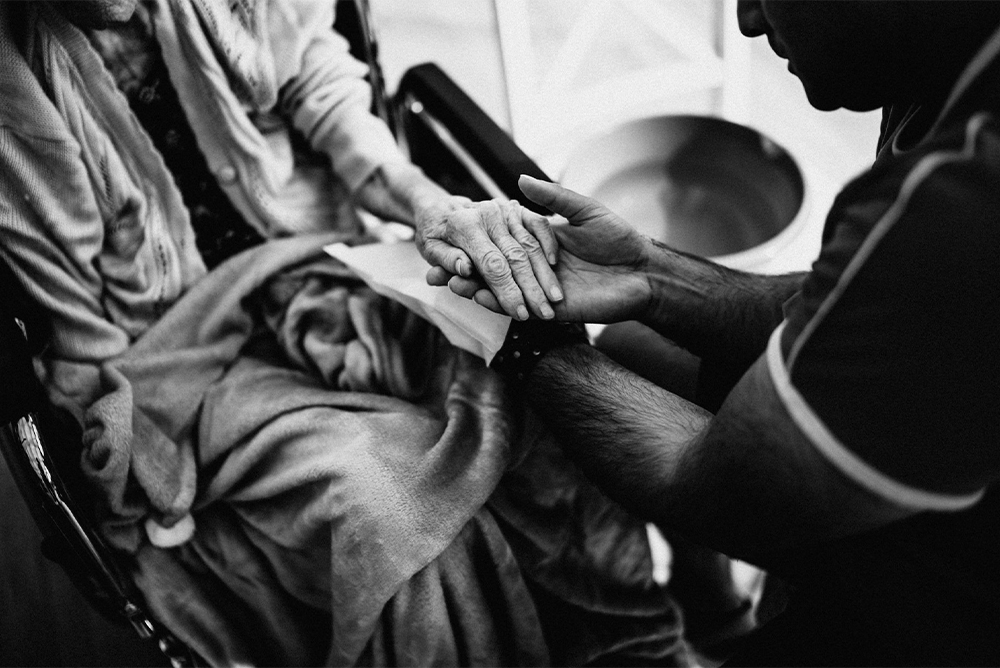
Courtesy of Jsme MILA/Pexels.
i.
she brought an island’s worth of family to the states, her eye beaconed the promised land of mammon, and we came. when her dementia was really bad she worried she wouldn’t go to heaven, for the sins she carried, the kin she buried, if not in death, then in forgetting. but she’s hardly alone in that: we’re all sinners if ignoring our bonds is the measure of loving each other,
including me. which is why she asks me. and i answer the way a son answers his elderly mother: with a slight twinge of guilt, of criminality, for abandoning her in a nursing home. my mom always building houses in her dreams.
my mom always dreaming of houses. ‘a wheelchair is a house,’ goes one of my lines in the rejected pile. for she was stationed like a veteran of wars, wars, wars, in her silla de ruedas
after a brain hemorrhage that almost killed her. my guilt is not at having to defend against her panic that maybe, deep down, i don’t–nobody does? love her. i do. ‘i love you more than you can imagine,’ she told me, her first (her second) son. the one she didn’t abandon from bare, inhuman, poverty. (or other reasons. my brother never will forgive her.)
‘being abandoned by your mother is something you carry for the rest of your life,’ i solemnly tell my therapist, between scrunched up tears, knowing how much worse my brother had it– has it–than i–
‘but he doesn’t know how bad we had it either,’ i add, ‘the inhuman arguments over buying simple groceries,’ when my stepfather would rattle and roar, bellow and sneer making frank noises of displeasure at having to feed his stepchildren. it’s no fairy tale, this, is it?
looking back, my brother escaped–not a worse fate, no, because being abandoned by your mother is a wound one never recovers from, but–from a brutally bruising childhood, without and within, at home and at school, monsters and wolves and
packing a knife to school, to brandish in self-defense, since in eighth grade i’d had to fight against a former friend who (looking back) was merely being taunted by his friends to bully me and reclaim his school cred as no homo.



